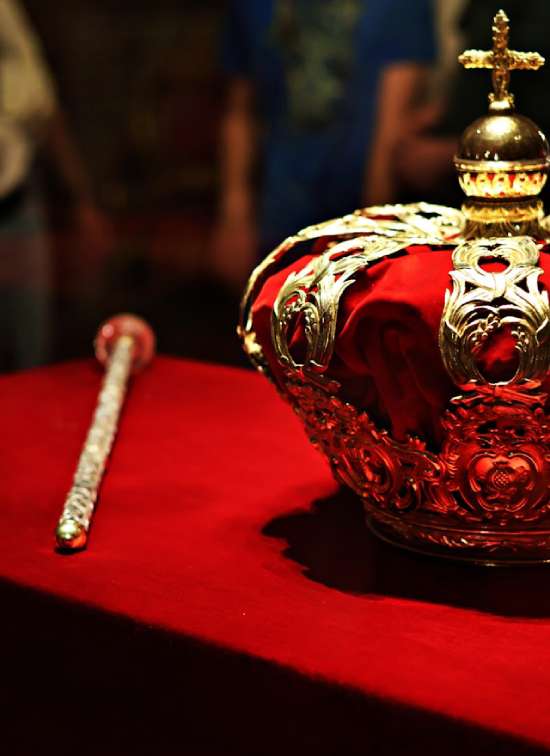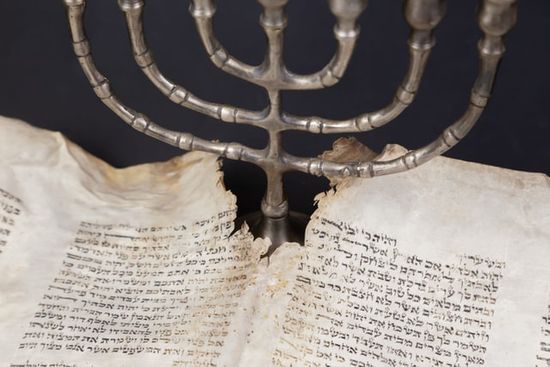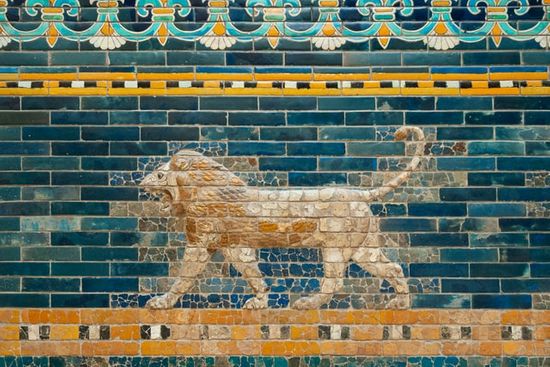
Conspiracies, royal scandals, dictatorships—history is full of them. And Bible history is no different when we stop to look at the kings of ancient Israel in the Old Testament.
In total, there were 43 monarchs of Israel: 42 kings and one queen.
This era of monarchy began at the time of the prophet Samuel (11th century bc). When the nation of Israel split into Israel and Judah, two lines of kings continued at the same time until each nation’s conquest (Israel was conquered by Assyria in 722 bc, and Judah by Babylon in 586 bc).
In order, the list of Israel’s rulers are as follows:
Israel (United): Saul, Ishbosheth, David, Solomon
Israel (Split): Jeroboam I, Nadab, Baasha, Elah, Zimri, Omri, Ahab, Ahaziah, Jehoram/Joram, Jehu, Jehoahaz, Jehoash, Jeroboam II, Zachariah, Shallum, Menahem, Pekahiah, Pekah, Hoshea
Judah: Rehoboam, Abijam/Abijah, Asa, Jehoshaphat, Jehoram, Ahaziah, Athaliah, Joash, Amaziah, Azariah/Uzziah, Jotham, Ahaz, Hezekiah, Manasseh, Amon, Josiah, Jehoahaz, Jehoiakim, Jehoiachin/Jeconiah, Zedekiah
Some of these kings get chapters’ worth of stories while others only get brief mentions. But every time, the Bible tells us whether the king was helpful or hurtful to their people. Did they do “what was right in the eyes of the L ord ” or not (1 Kings 15:11, NKJV)?
The answer to that question was what shaped the course of the nation during that king’s reign.
And it teaches us a lot about human nature, and what it really means to follow God
To see how the kings of Israel still matter to us today, we’re going to look at:
Let’s start with some historical context.

During the time of the prophet Samuel, the people of Israel begged God to give them a king.
For one, they wanted to be like the monarchies around them.
Second, many of the judges leading Israel at that time were corrupt (1 Samuel 8:3–5), and Samuel’s sons—the next judges—unfortunately were no different.
God had intended that Israel would be a theocracy—answering to Him instead of an exalted ruler on earth. He had given them prophets for spiritual guidance. But to the people, this wasn’t enough. They wanted more. They wanted to look powerful.
And so, God granted their appeal even though it wasn’t His ideal (1 Samuel 8:7–9). They would learn for themselves what it meant to have a king.
The rulers of Israel (later Israel and Judah) are an eclectic group of 42 kings and one queen that reigned from about 1052 bc to 586 bc. Some of them were wise individuals that brought religious revival and peace to the nation. But even with all their strengths, they were still human.
Many of these monarchs succumbed to temptations and weaknesses. Others turned from God completely and led the people into idolatry and chaos. Some of them even became dictators, caring only about power and position.
Let’s get a brief overview of each one to understand the spectrum of leaders Israel had, in order of reign.
Saul was the first king of Israel, chosen by God and anointed by the prophet Samuel.
He began his kingship as a humble man filled with the Holy Spirit, but within two years, pride got the better of him. He deliberately disobeyed God’s clear instructions and lost His blessing (1 Samuel 13:13–14).
He reigned for about 40 to 42 years (Acts 13:21) before ending his life during a war with the Philistines. 1
Ishbosheth was Saul’s son. Though God had chosen David to be the next king, Saul’s general Abner tried to put Ishbosheth on the throne (2 Samuel 2:8–10).
He reigned for two years over all the tribes, except Judah. War went on between David’s army and Ishbosheth’s army until Abner defected and allied himself with David.
Not long after, two assassins murdered Ishbosheth, mistakenly thinking that would please David (2 Samuel 4).

David was Israel’s strongest king and was even called a man after God’s heart (Acts 13:22).
Though anointed as king at a young age, he didn’t ascend the throne for 15 years (1 Samuel 16:13).
Meanwhile, he was a shepherd, a psalm writer, a harpist, and a mighty warrior who led Saul’s armies. His potential, however, made him a target of Saul’s jealousy. Saul’s attempts to kill David forced him to live on the run.
When he became king at last, he reigned over the tribe of Judah for seven and a half years (2 Samuel 5:4–5) and the rest of Israel for another 33 years (1 Kings 2:10–11).
Solomon, David’s son, reigned for 40 years as the most prosperous of all Israel’s kings. When he first became king, God blessed him with not only world-renowned wisdom but also great wealth (1 Kings 3:3, 7, 9). He built the famous Solomon’s temple in Jerusalem (1 Kings 6).
But lust was his downfall. He took hundreds (yes, hundreds) of foreign wives and concubines who led him away from God toward pagan worship (1 Kings 11:1–8).
The result? God would take part of Solomon’s kingdom away from his son (verses 11–13).
When Rehoboam, Solomon’s son, came to the throne, ten of the tribes of Israel rebelled against him (1 Kings 12). As a result, the kingdom split into Israel (the northern kingdom) and Judah (the southern kingdom).
What triggered the rebellion?
The people had pleaded with Rehoboam to lessen their burdens—those placed on them when Solomon had turned from God and become an oppressive king. But Rehoboam threatened them with greater burdens.
Angered at his cruelty, ten tribes (except Judah and Benjamin) united under Jeroboam and became a separate nation—still called Israel.
We’ll look at Israel’s line of kings first.
After Solomon, Israel had 19 kings—all of them ungodly. The line of kings begins with Jeroboam I (around 924 bc 2 ) and goes to Hoshea. During Hoshea’s reign, the Assyrians captured the Israelites and brought an end to the nation.
Though God had promised the kingdom to Jeroboam, he turned from God and started a chain of evil influence during his 22-year reign.
To prevent the Israelites from going to the Jerusalem temple (in Judah) to worship, he set up golden calves in both the northern and southern regions of his kingdom. This blend of pagan worship and the worship of God caused a lot of confusion among the people, as you can imagine.
Nadab followed in the footsteps of his father Jeroboam. He only reigned for two years before he and Jeroboam’s other relatives were assassinated by a man named Baasha (1 Kings 15:29).
Baasha took the throne by force and reigned for 24 years. The prophet Jehu came to him and prophesied his downfall because Baasha had assassinated Jeroboam’s family.
Elah, Baasha’s son, only reigned for two years. His captain of chariots, Zimri, assassinated him and took the throne.
Zimri destroyed all of Elah and Baasha’s household to get the throne. But his reign was short-lived. After seven days, the people found out what he’d done and made Omri king instead.
Omri took an army and besieged the city of Tirzah where Zimri was. In desperation, Zimri set his palace on fire and died there.
Omri wasn’t much better than Zimri in morality, though he did reign for 12 years. But first, he had to deal with civil war when some of the people made a man named Tibni king instead. Once Tibni died in battle, Omri was able to unite the people under himself.

Ahab was an evil king, known for his marriage to an idolatrous and cruel woman (ever heard of Jezebel?). During Ahab’s 22-year reign, Jezebel championed the worship of Baal.
And who was Baal?
The Canaanite people exalted him as a god of fertility. They set up idols and altars, where they honored him with animal sacrifices. But the “worship” didn’t stop there—it also involved sexual rites or even sacrificing their own children. 3
Because of all this mess, God sent the prophet Elijah to King Ahab to warn about a coming judgment: a drought. The drought lasted for three years until a showdown took place between Elijah and the prophets of Baal on Mt. Carmel. There, God sent fire from heaven to consume the sacrificial offering prepared for Him (1 Kings 18:38, 39), demonstrating that He was on Elijah’s side and that Ahab’s kingdom would be taken from him.
Ahaziah, Ahab’s son, wasn’t much better than his parents. He continued to encourage national worship of Baal during his two-year reign.
Jehoram, Ahaziah’s son, was also an evil king. During his 12 years on the throne, he had to deal with many enemy nations, including the Moabites and the Syrians. He was assassinated by Jehu.
The prophet Elisha anointed Jehu king while Jehoram was still on the throne. God commissioned Jehu to bring judgment on Ahab’s family line (2 Kings 9:7–9, 24–27).
Jehu tried to reform Israel but resorted to a less-than-ideal method—deception. He pretended to be a follower of Baal and called a gathering, only to kill all those who attended (2 Kings 10:18–28).
Jehoahaz started his 17-year reign at odds with God. Because of his wayward actions, God allowed the Syrians to conquer Israel. But Jehoahaz cried out to God for help, and God in His mercy delivered the Israelites.
Jehoash, also referred to as Joash, was evil like his father Jehoahaz. He also continued to fight against the Syrians. But a prophet of God by the name of Elisha came to Jehoash and prophesied that Israel would gain some victories during this time (2 Kings 13:14–19).
Jeroboam II, Jehoash’s son, reigned for 41 years. Though he didn’t follow God, he was able to restore some of the coastal lands of Israel.
Zachariah, Jeroboam’s son, reigned for six months before being killed by Shallum.
Shallum, identified in the Bible as “the son of Jabesh,” began a bloody time in the nation of Israel when he assassinated King Zachariah. After only a month, Shallum was killed by Menahem.
Menahem, the son of Gadi, ascended the throne and reigned for ten years. During this time, the Assyrian King Pul attacked Israel. Menahem surrendered and agreed to pay him a tribute of money or other resources in exchange for peace.
Pekahiah was the son of Menahem. He reigned for two years until Pekah, a captain in his army, conspired against him and murdered him.
Pekah stayed on the throne for 20 years, facing the attacks of King Tiglath-Pileser of Assyria against Israel. He was murdered by Hoshea.
Hoshea was the last king of Israel. His reign ended with the fall of Israel’s capital Samaria, which ushered in the Assyrian captivity (722 bc ).
The nation of Judah had 20 kings from Rehoboam’s reign (about 924 bc ) to the Babylonian captivity in 586 bc . 4 Unlike Israel, Judah had a mixture of good kings and evil kings.
Rehoboam was Solomon’s son. He initially followed God (2 Chronicles 11:17), but the weakness of his father—lust—brought him down, too (verse 23).
While Rehoboam reigned over Judah for 17 years, he led the people to worship other gods. It wasn’t until the king of Egypt invaded the nation that Rehoboam realized the error of his ways and humbled himself before God (2 Chronicles 12:2–12).
Abijam (also called Abijah) was Rehoboam’s son. At the beginning of his three-year reign, he relied on God and gained victory over Israel in battle (2 Chronicles 13:8–22). But like his father, he let temptation overcome him (1 Kings 15:3).

Asa, Abijam’s son, reigned for 41 years. He was a godly king who removed the idols in the land and spurred reformation (2 Chronicles 14:1–5). He fortified the cities of Judah and defeated the Ethiopians by trusting in God (verses 9–12).
In his later years, he made a wrong move in allying himself with the king of Syria (2 Chronicles 16:2, 7). Then, he died of a foot disease because he refused to seek God for help (verse 12).
Jehoshaphat, Asa’s son, reigned for 25 years and continued the reforms his father had started; he sent priests throughout the nation to teach God’s law. During his reign, Judah grew militarily and economically.
When the Moabites, Ammonites, and Edomites threatened to attack, Jehoshaphat cried out to God for help and sent singers out with the army to praise God (2 Chronicles 20:20–22).
His reign was successful, but a major mistake would change the course of future generations:
He allied himself with the ungodly King Ahab of Israel, giving his son Jehoram in marriage to Ahab’s daughter, Athaliah (2 Chronicles 19:2).
Jehoram, Jehoshaphat’s son, murdered all his brothers when he ascended the throne. His wife Athaliah influenced him to turn away from God.
And consequences followed. Without God’s blessing and protection, Judah experienced unrest as the nations of Edom and Libnah revolted against it (2 Chronicles 21:8–10). Finally, Jehoram died of an incurable disease after reigning for eight years.
Ahaziah was the son of Jehoram and the grandson of King Ahab of Israel. He listened to the wayward advice of his mother (verse 3) and other counselors instead of following God. After only one year on the throne, Ahaziah was killed by King Jehu of Israel.
Athaliah was the only woman to reign over Judah. She was the daughter of King Ahab and Queen Jezebel of Israel. After the death of her son Ahaziah, she destroyed all her rivals to the throne (except for Joash—who we’ll learn about next).
She reigned for six years, but then the priest Jehoiada—together with the captains and guards of the palace—overthrew her and made Joash king instead (2 Chronicles 23:1–8).

Joash was Ahaziah’s only surviving son—saved by his aunt Jehosheba who acted quickly when Athaliah was murdering the royal family. Jehosheba, together with the priest Jehoiada, hid him in the temple for six years and taught him about God. When Joash turned seven, Jehoiada declared him king in a coup against Queen Athaliah.
During the lifetime of Jehoiada, Joash honored God and raised money to repair the temple.
But sadly, when Jehoiada died, Joash turned to idols (2 Chronicles 24:17–18). He even ordered the death of the prophet Zechariah (a relative of Jehoiada) because he didn’t like his message.
Joash’s 40-year reign came to an end when his servants killed him.
Amaziah, Joash’s son, was a good king who reigned for 29 years. He defeated the Edomites because he followed God’s counsel, as communicated through a prophet.
Things took a turn for the worse, though, after he set up the Edomites’ idols in Jerusalem. God sent a prophet to Him to call him out, but this time he chose not to listen. So, without God’s blessing and help, he lost a battle to the Israelites and King Jehoash. And finally, a group of conspirators murdered him.
Azariah, also known as Uzziah, began his 52-year reign on a good note. But pride was his downfall. He thought he could perform an act of worship in the temple that only the priests were allowed to do—burn incense upon the altar. His presumption resulted in judgment: he was afflicted with leprosy.
Jotham, the son of Azariah, was a godly king who reigned for 16 years. He helped repair God’s temple in Jerusalem and defeated the Ammonites who attacked Judah.
Ahaz didn’t follow the example of his father Jotham. He adopted the evil worship practices of surrounding nations, such as serving the idol Baal and performing pagan rituals of child sacrifice. During his reign, the temple of God closed down.
The Syrians and Israelites defeated him in battle, taking many people captive. He allied himself with the Assyrians—but it came at the price of a high tribute.
Ahaz’s son Hezekiah was a godly king that reversed some of his father’s evildoing. The nation experienced a prosperous time—spiritual and otherwise—during the 29 years he reigned. He restored the Passover service and a time of celebration that Judah had not experienced since the time of Solomon.
When Hezekiah thought he was going to die from sickness, he prayed for healing, and God extended his life for 15 years.
Manasseh began his reign at 12 years of age and continued for 55 years. This makes him the longest-reigning king of Judah.
Sadly, he did the opposite of his father Hezekiah and led the people to worship Baal. He practiced witchcraft and consulted mediums—not to mention that he “shed innocent blood” (2 Kings 21:16 NKJV).
The Assyrians attacked Jerusalem and imprisoned Manasseh, leading him to hit rock bottom and repent. As a result, God restored the kingdom to him.
Manasseh’s reform was too late to change his son Amon. Amon was an evil king, but he only reigned two years before his servants assassinated him.

Starting at eight years old, Josiah reigned for 31 years. He followed God despite his evil father, Amon.
When the high priest Hilkiah discovered the book of the law of the Lord that had been lost during Manasseh’s reign, Josiah took its message to heart. Hearing the judgments that had been prophesied, he cried out to God for mercy. He asked for the law to be read to all the people, starting a reformation and averting judgment during his lifetime.
The Bible tells us that there was no king quite like Josiah, “who turned to the L ord with all his heart and with all his soul and with all his might” (2 Kings 23:25 NKJV).
Jehoahaz, Josiah’s son, was an evil king who reigned for only three months. He was taken prisoner by Pharaoh Neco of Egypt, and Judah came under Egypt’s control.
Jehoiakim, made ruler by the Pharaoh, was Jehoahaz’s brother. Jehoiakim’s reign lasted 11 years, during which he oppressed the people and taxed them heavily—so he could pay tribute to the Pharaoh. Babylon also besieged Jerusalem for the first time in 605 bc .
Jehoiachin (sometimes referred to as Jeconiah) was the son of Jehoiakim. He took the throne for three months until Babylon besieged Jerusalem the second time (597 bc ) and captured many people, including Jehoiachin. He remained imprisoned until the Babylonians released him in 561 bc (2 Kings 25:27–30).

Zedekiah, Jehoiachin’s brother, was a figurehead appointed by the Babylonians. He refused to listen to God’s counsel to submit to the Babylonians and rebelled against them during the 11th year of his reign. The Babylonians responded by besieging Jerusalem one final time and destroying it in 586 bc .
God used Israel’s kings in administrative, military, and spiritual capacities. Here are some of the key roles they had:
Though we aren’t kings and we may not live under a monarchy, the stories of Israel’s kings teach us lessons about human nature and the Christian life . Lessons such as:

God values and protects our freedom of choice. That’s why He allowed the Israelites to have kings (despite His warnings) and allowed those kings to make decisions on behalf of the nation. But with these decisions come consequences, either positive or negative. However, if we allow them, even negative consequences can become opportunities for growth .
A nation, an organization, a church, etc., is inevitably affected by its leadership. If the leaders choose lives of humility before God, they can do so much good. But if they give in to selfish motives, they often lead those under them in the same direction.
Sad as it is, the human tendency is not toward caring for the hurting and championing the rights of the oppressed. When left to our own devices, we so commonly become controlled by fear and pride.
Fear leads to selfish acts of preservation and rarely to love and compassion. Fearful people tend to look for ways to control others so they can get to the top. Pride can lead to overconfidence, lack of caution or care, hedonistic tendencies, and little regard for others.
If these hundreds of years of recorded history in the Bible tell us anything, it’s that we need help from outside ourselves.

We may not be fighting physical battles like the kings of Israel, but we still need God for our spiritual battles—whether we’re fighting resentment toward a family member, struggling to resist the pull of our vices, trying to keep calm when our kids make us want to scream, or looking for strength to keep our integrity when it seems everyone around us is making up their own standards of morality.
Depending on God is our lifeline in every situation. It starts with calling out to Him for help and repeating the Bible promises He’s given us.
And these counselors don’t always have to be professionals or experts to make an impact. This can apply to any source of advice we turn to—a favorite radio show host, a knowledgeable or charismatic friend, that New York Times bestselling self-help book, a trusted family member, etc.
Who you choose to listen to can definitely steer your future.
The kings of Israel spanned the whole gamut of leadership:
Benevolent to corrupt.
Humble to proud.
Obeying God to worshiping idols and practicing appalling rituals.
The insights in their stories are still relevant today as we see the same human nature playing out in our lives and the lives of those around us.
And even the best fail. Sometimes spectacularly.
Just look at Solomon. When he humbly asked for wisdom, God gave him an incredible IQ with the bonus of wealth and prosperity. His reign was the greatest of all Israel’s kings. And yet, he fell.
None of us are exempt from making major mistakes. And so, the kings of Israel teach us that we must rely on King Jesus above every human being (Psalm 146:3–5). He lived a perfect example and offers us the power to follow it.
And He will never fail us.